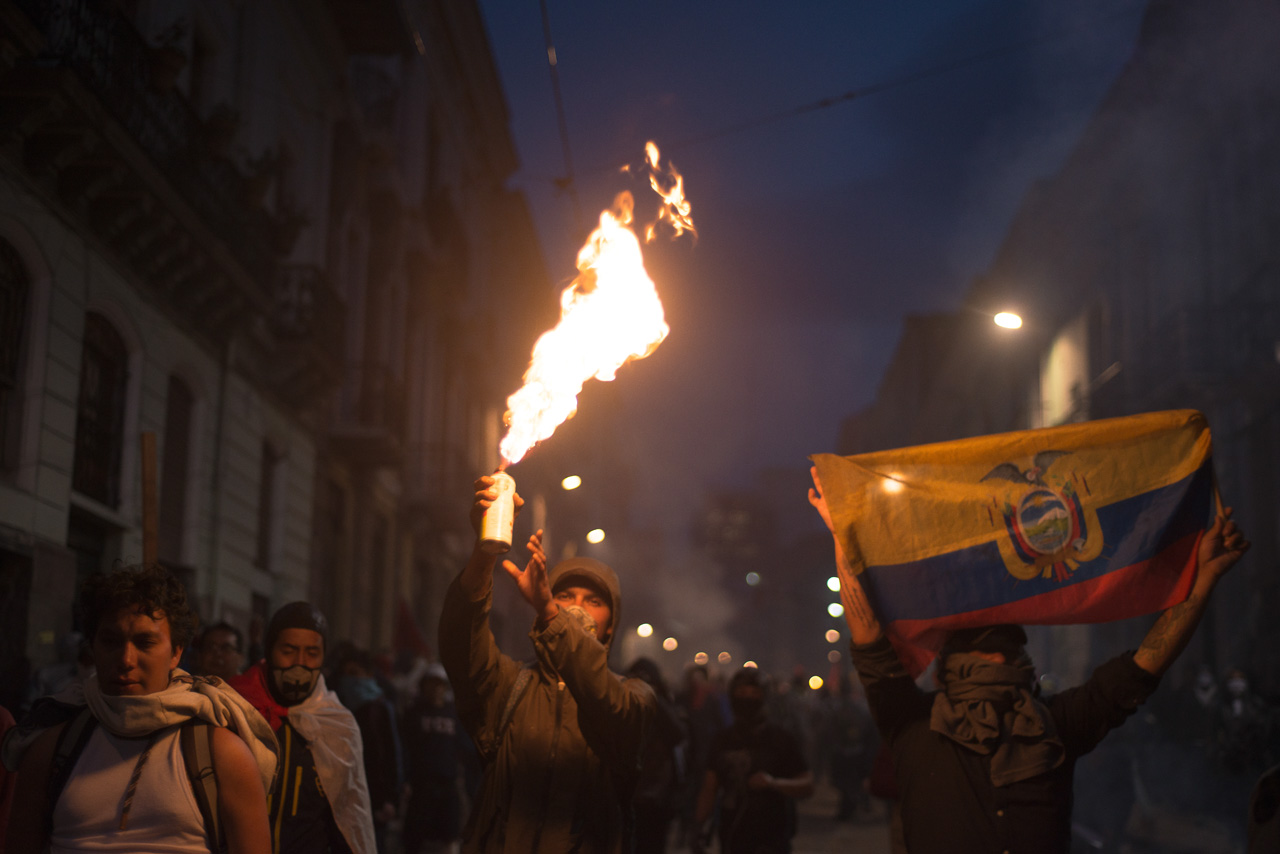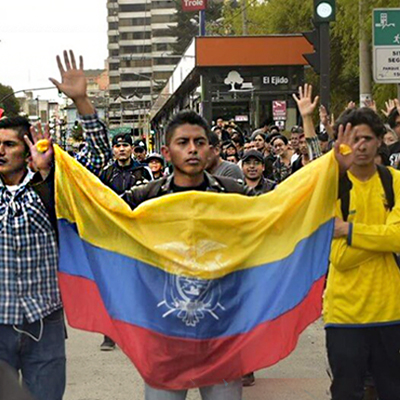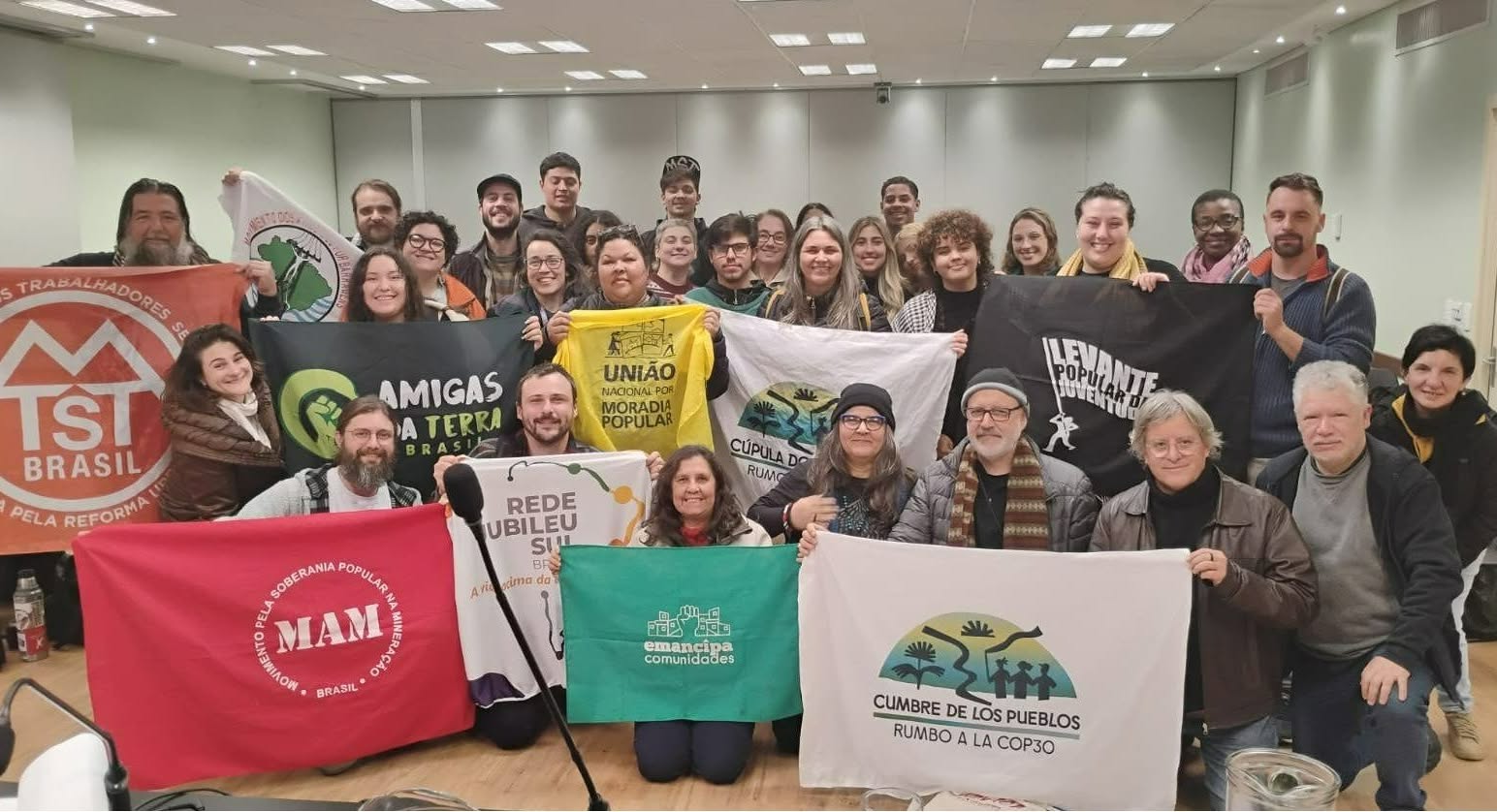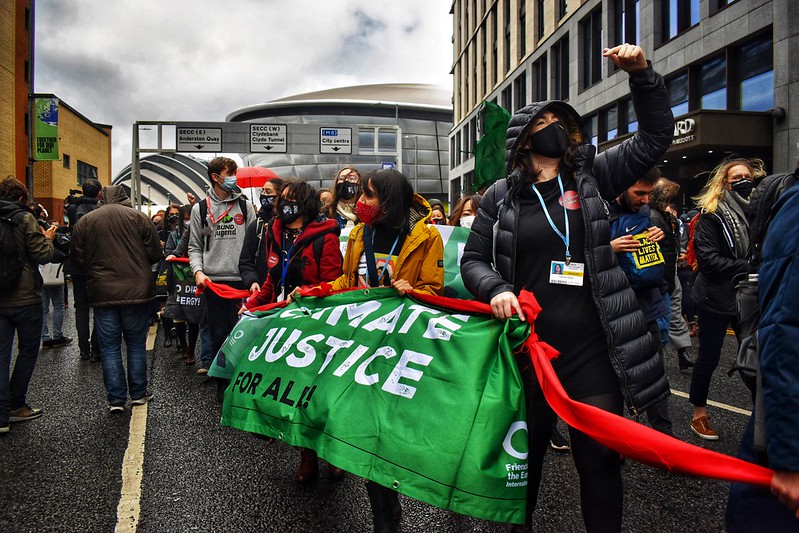Protests in Ecuador: indigenous communities travel to Quito
20,000 indigenous people from CONAIE are travelling to the capital city of Ecuador, Quito, to participate in a national strike
 Movilizaciones en Quito, 3 de octubre 2019. Foto: Luis Herera, Chakana News.
Movilizaciones en Quito, 3 de octubre 2019. Foto: Luis Herera, Chakana News.
The Chair of the Confederation of Indigenous Nations of Ecuador (CONAIE), Jaime Vargas, announced that the members of the organization arrived to Quito on Monday 7. The march of indigenous movements and nations was met with violent attacks by the Ecuadorian Police.
The leader stated that the communities will continue to mobilize and announced that “a dialogue with the Ecuadorian government will not take place as long as Executive Decree 883 is not repealed”. Through this decree, announced by Lenín Moreno last week, fuel subsidies were eliminated. This caused prices to soar and tens of social organizations mobilized in response.
Meanwhile, the president has moved the government from Quito to Guayaquil.
President Lenín Moreno announced several economic measures which would come into force immediately and other labor reforms which should be discussed and approved by the National Assembly. This is an economic decision that reflects the measures demanded by the International Monetary Fund (IMF) for the country to access over 4 billion dollars in credits.
The measures can be divided in three groups: those derived from the agreement with the IFM to reduce public spending; labor reforms to allow for more flexibilization of the sector and more freedom for large companies; and social measures that seek to somehow appease social dissatisfaction.
“Of all the economic measures announced by the President, the elimination of fuel subsidies is the one that prompted a direct reaction by the population since it will result in higher public transportation costs and an increase of the prices of basic products. The response by transportation, student, indigenous and social movements was to held protests around the country, while the government issued a State of Emergency with over 300 people detained throughout the country”.
Source: Wambra






